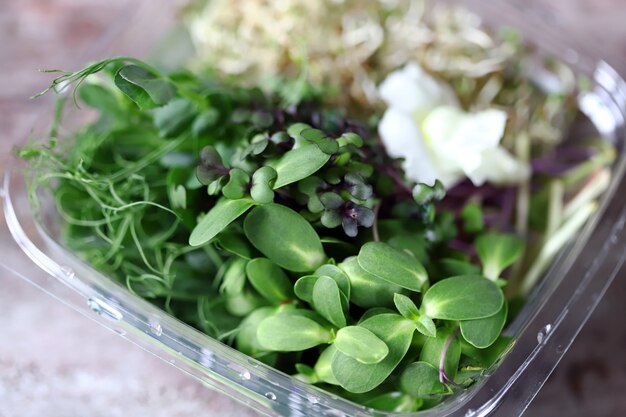The Ultimate Guide to Keeping Your Herbs Fresh and Flavorful in the Refrigerator
Picture this: you’ve just returned from the grocery store with a bouquet of vibrant herbs, ready to add a burst of freshness to your meals. But a week later, they’re wilted and browning, leaving you frustrated. Fear not! With the right techniques, you can extend the shelf life of your herbs and keep them fresh in the refrigerator for as long as possible. Below, we’ll explore the best methods to preserve that garden-fresh zest.
🌿 Why Keep Herbs Fresh?
Before diving into the how, it’s important to understand the why. Fresh herbs are packed with flavors and nutrients, capable of transforming any ordinary dish into a culinary delight. Maintaining their freshness ensures:
- Maximum Flavor: Fresh herbs have a more potent aroma and taste compared to dried or wilted ones.
- Nutrient Retention: Preserving their freshness helps keep the vitamins and antioxidants intact.
- Cost Efficiency: Reducing waste means fewer trips to the store, saving you money in the long run.
Armed with these motivations, let’s explore how to keep that greenery fresh and lively.
Understanding Herb Types: Tender vs. Hardy
Tender Herbs
These are delicate, with soft stems and leaves. Examples include basil, parsley, dill, cilantro, and mint. Tender herbs need moisture and a touch of warmth to stay vibrant.
Hardy Herbs
These have a woodier structure and can withstand cooler temperatures. Rosemary, thyme, oregano, and sage fall into this category. Hardy herbs are easier to store and often last longer.
H2: Storing Tender Herbs: The Basics
Moisture and Temperature Balance
To keep tender herbs fresh, balance is key. The ideal storage solution involves providing moisture without drowning them.
- Trim the Stems: Snipping the ends of the stems allows better moisture absorption.
- Container & Water: Place herbs in a jar with an inch of water. Much like flowers in a vase, this keeps them hydrated.
- Humidity Control: Cover the herbs loosely with a plastic bag. This prevents them from drying out while offering some air circulation.
- Location: Store in a warmer portion of your fridge, usually in the door or upper shelf.
- Routine Water Check: Refresh the water every 2-3 days to prevent bacteria growth.
Basil Exception
Basil is a tender herb that prefers life outside the fridge. Place in a jar with water on a sunny windowsill for optimal freshness.
H2: Storing Hardy Herbs: Best Practices
Hardy herbs are less sensitive but still benefit from proper care.
Dry Wrap Method
- Remove Dead Leaves: Begin by removing any browned or wilted leaves to prevent rot.
- Damp Paper Towel: Wrap the herbs in a slightly damp paper towel. This provides necessary moisture without making them soggy.
- Seal & Store: Place the wrapped herbs in a resealable bag or airtight container. Store in the crisper drawer for optimal humidity control.
- Check Periodically: Review every few days to ensure they remain fresh and free from mold.
Preservation Beyond the Fridge
Perhaps fresh isn’t enough. If you find yourself with an abundance of herbs, consider preservation methods beyond refrigeration.
Freezing
Freezing is a fantastic option to extend shelf life and retain flavor:
- Chop & Freeze: Chop herbs and place them in ice cube trays. Fill with olive oil or water, then freeze. Perfect for adding directly to soups or stir-fries.
- Flash Freeze: Spread leaves on a tray, freeze briefly, then store in freezer bags. This prevents clumping and allows you to grab a small handful when needed.
Drying
Drying herbs provides a longer shelf life and a concentrated flavor:
- Air Drying: Tie herb bunches and hang in a dark, ventilated place. Once crisp, crumble and store in airtight containers.
- Oven Drying: Spread leaves on a baking sheet and dry in an oven at the lowest setting. Monitor closely to avoid burning.
Keeping Your Herbs Clean
- Rinse Before Use, Not Storage: Washing herbs before storage can make them more susceptible to mold. Instead, rinse them before use.
- Inspect Regularly: Quick checks every few days help catch and remove deteriorating leaves, preventing spoilage spread.
🌱 Key Takeaways for Herb Enthusiasts
Let’s summarize the tips to ensure your herbs remain fresh and flavorful:
- 🌿 For Tender Herbs: Trim stems, store in water, and cover with a plastic bag.
- 🌿 For Hardy Herbs: Wrap in a damp towel and store in the crisper.
- ❄️ Freezing: Use ice trays for easy cooking portions.
- 🌞 Drying: Air or oven drying for long-term storage.
- 🧽 Inspection: Regularly check and remove wilting parts.
Experimenting with Herb Freshness
As you apply these methods, take note of what works best with your refrigerator’s specific setup. Each kitchen is unique, and small adjustments might yield even better results. Extend your fresh herb knowledge to boost their flavor and lifespan, minimizing waste and maximizing your culinary creativity.
Keeping herbs fresh in the refrigerator is a seamless process with lasting rewards. By following these guidelines, you’ll ensure that every dish bursts with the garden-fresh flavors you love, all while saving time and money. Embrace these fresh habits and savor every leaf, no matter the season!

